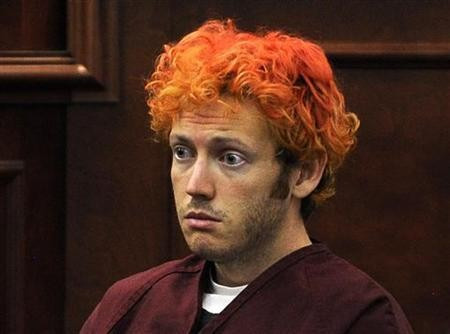A Prescription for Murder? BBC Panoroma just set mental health journalism back decades
The documentary questioned whether SSRI antidepressants played a part in James Holmes' murders.

Last night's Panorama programme A Prescription for Murder? set back the journalism of mental health by decades.
The mental health sector and indeed many in the media have worked hard to raise the profile of mental illness and reduce stigma. Every time someone makes a link, without any good evidence, between antidepressants and extreme violence, this is compromised.
At least 40 million prescriptions are issued for antidepressants in the UK each year. Of those people taking antidepressants, the percentage of people who go on to commit acts of violence is extremely small. Making a link between the two only increases stigma - which we know exacerbates someone's mental illness.
Considerable research has been done - and more research is being done - but as it stands there is absolutely no evidence to suggest a causal link between antidepressants and murder. What the evidence does show is that antidepressants are an effective treatment for an extremely serious illness. Explaining how depression feels to somebody who has never been depressed is difficult – and that makes it difficult to explain how life-saving antidepressant medication can be.
Depression can make people feel exhausted and worthless. Plagued by a persistent low mood, they might not be able to eat or sleep and in the very worst cases they might be considering suicide. Antidepressants can save lives.

The mental health sector is therefore extremely concerned that those on antidepressants, or those planning to see their doctor about a mental health problem, may come off their antidepressants suddenly or think twice about opening up. To those people let me say this: the benefits of antidepressants vastly outweigh the risks. If you have a mental health problem, you deserve to get better - and the best treatment by far is a combination of antidepressants and talking therapy.
Some people believe doctors too readily prescribe antidepressants. They cite the rising number of prescriptions for antidepressants as sufficient evidence for this. This can be easily explained as the more people come forward with mental illness, the more people are prescribed antidepressants. The fact of the matter is that only one in three of those who need help receive it. Society would not accept only one in three people receiving treatment for cancer. And would people be so quick to suggest a link between cancer treatment and violence?
It's also worth remembering that as well as depression, antidepressants are used to treat anxiety, chronic pain and OCD. These conditions are thought to maybe make up as much as 40% of prescribing for SSRIs (selective serotonin reuptake inhibitors), the most common type of antidepressant.
The potential harmful effects of making this unfounded link on a well-established television channel cannot be understated. My colleagues across the mental health sector have expressed similar concerns. We have a duty of care for the people we treat and represent. That duty of care is at risk when people are told that the lifesaving drugs they are on might make them prone to murder.
Professor Wendy Burn is the President of the Royal College of Psychiatrists.
© Copyright IBTimes 2025. All rights reserved.






















